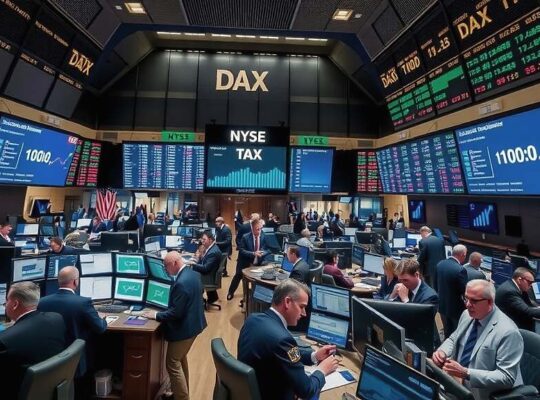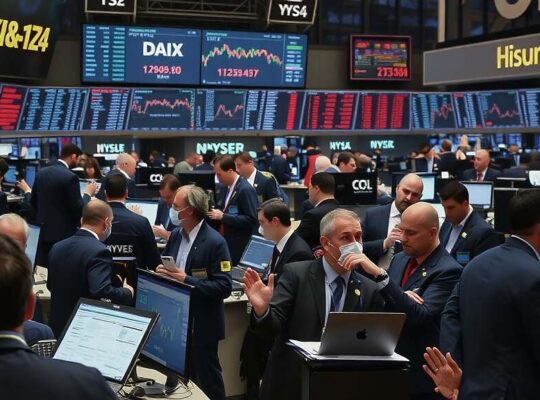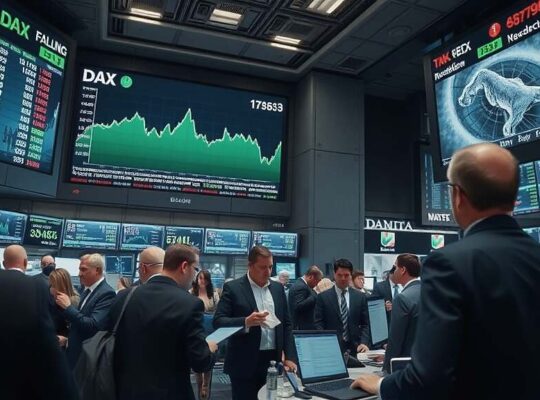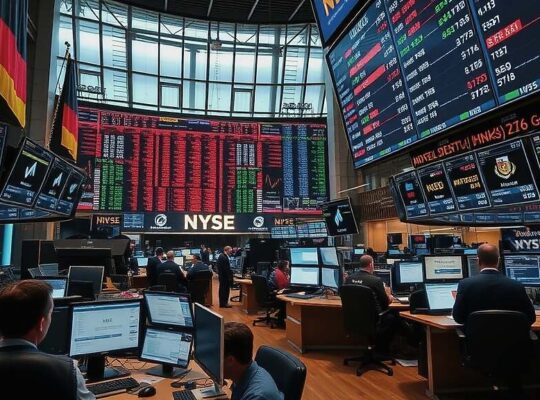European markets opened with a subdued performance Friday morning, reflecting anxieties stemming from a Wall Street sell-off and concerns about an emerging AI bubble. The German DAX index began trading significantly lower, registering around 23,095 points – a drop of 0.8 percent from the previous day’s closing level.
Analysts attribute the market downturn to a waning enthusiasm surrounding artificial intelligence, specifically following the release of Nvidia’s earnings data. Market sentiment appears to have pivoted sharply, with the NASDAQ 100 experiencing its second-weakest trading day since the April tariffs turmoil. This shift was underscored by substantially increased trading volumes, rivaling only those seen during the peak of tensions surrounding potential new tariffs on China. The surge in volume strongly suggests a wave of panic selling, compounded by the seasonal aversion to establishing new positions as the year draws to a close.
The heightened volatility reflects a broader uneasiness. The NASDAQ 100 Volatility Index currently sits at a level last observed in April, signaling a period of unpredictable market swings. The DAX is entering the trading day burdened by the previous day’s negative performance, having closed for the third consecutive day below the crucial 200-day moving average – a technical indicator last breached at the tail end of 2023.
While today’s options expiry is not anticipated to generate substantial market movement, given the relatively minor volume associated with November expiries, specific put options expiring at 23,200 and 23,400 points could introduce a limited degree of turbulence. Approximately 3,500 and 3,800 contracts, respectively, are due to expire.
The euro strengthened slightly against the dollar, trading at $1.1549, with the dollar fetching €0.8659. Precious metals also showed weakness, with gold falling to $4,047 per fine ounce (-0.7 percent), translating to €112.65 per gram. Brent crude oil experienced a significant decline, dipping to $62.36 per barrel, a decrease of $1.02 or 1.6 percent, indicating potentially broader shifts in global economic outlook and investor confidence. The convergence of these factors suggests underlying anxieties that could weigh on markets in the weeks to come.












